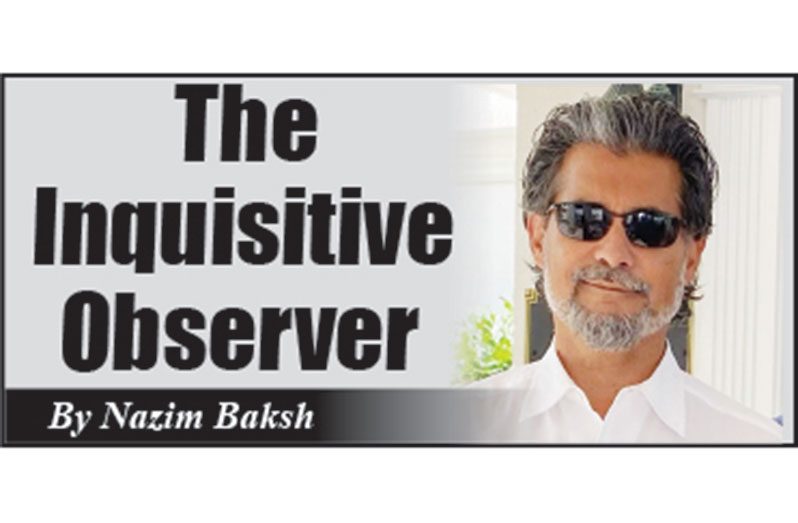THIRTY years before Guyana achieved independence from British colonial rule, Jamaican political activist, Marcus Garvey, issued a powerful call that still echoes across generations: “Emancipate yourselves from mental slavery. None but ourselves can free the mind.” Garvey’s words, delivered in 1937 at Menelik Hall in Sydney, Nova Scotia, resonated deeply with the world’s colonised peoples, including those of us in Guyana.
Garvey’s message—and those of other transformative leaders like Martin Luther King Jr. and Malcolm X, whose 100th birth anniversary we marked last week—reminded us that true liberation requires more than the lowering of a foreign flag or the raising of our own. It demands a fundamental transformation of consciousness, a breaking of the invisible chains that colonialism left behind.
A decade after Guyana’s own break from British rule, as teenagers like me came of age in the late 1970s, Bob Marley’s “Redemption Song,” echoing Garvey’s words, became our anthem. We understood that the struggle for freedom and self-determination was far from over. Political independence had been won, but the promise of genuine liberation remained elusive for many, especially under Forbes Burnham’s PNC government. The mass migration that followed—a brain drain that depleted our nation’s talent—left a lasting trauma that, I believe, still haunts us today.
Just over a year ago, I decided to return to Guyana—not to retire, nor simply to escape the frosty Canadian winters, though they certainly played their part. My return was a personal act of emancipating my mind, of answering Garvey’s call. I had to believe that Guyana is not only a place to visit, but a country worthy of investment, of hope, of building a future. I had to let go of the inherited cynicism that told us we are doomed to fail, and embrace the conviction that what was broken can be repaired—by us, the descendants of the colonised.
There were also powerful “pull” factors. After the 2015 elections, the current PPP/C administration regrouped and set about drafting a comprehensive roadmap for the transformation of every sector of Guyanese society. While I cannot claim insider knowledge, I am convinced that in the months leading up to the 2020 elections, the PPP/C leadership made a solemn commitment: to turn their vision of transformation into reality. The diligence and perseverance I have witnessed firsthand among government ministers speak volumes about that commitment.
But let us be clear: it is impossible to free the mind when bellies are empty, when children lack food, education, and basic healthcare, when roads and bridges are crumbling, and when our infrastructure belongs to another era. Talk of Garvey, Malcolm X, and Marley resonates only when there is milk in the fridge and food on the table.
That is why I was not surprised when the BBC Science Focus Magazine reported last Thursday that, out of 186 countries, only Guyana now produces enough food to feed all its citizens without relying on imports. Whether it’s fruits, vegetables, dairy, fish, or meat, Guyana is now able to nourish every citizen, not just to survive, but to thrive. This achievement is not the work of a single ministry. It is the result of a colossal, coordinated effort across government—agriculture, technology, infrastructure, housing, education, finance, tourism, and more—underpinned by a shared vision for national transformation.
And yet, as we celebrate our 59th Independence Day, we must confront a sobering reality: the old racial stereotypes and colonial divisions still linger, preventing many Guyanese from recognising the mountain of progress before us. The trauma of colonialism continues to haunt our society, making Garvey’s call for mental emancipation as urgent today as it was nearly a century ago.
If we are to truly become “One People, One Nation, One Destiny,” we must not only acknowledge our remarkable achievements but also commit ourselves to healing, unity, and the ongoing work of freeing our minds. Only then will the promise of independence be fully realised.
We are beginning to witness a powerful awakening within civil society. In the aftermath of the tragic death of Adriana Younge, faith communities have demonstrated their vital role in fostering healing, reconciliation, and peaceful dialogue, showing us that unity and hope can emerge even from our darkest moments. This awakening signals that true transformation requires not only government action but also the active engagement of all sectors of society.
Our younger generation of Guyanese is already stepping forward to enrich and redefine the narrative of ‘One Guyana.’ Their voices, creativity, and commitment to justice and unity are essential to breaking free from the lingering divisions and mistrust that colonial powers once sowed to keep us apart. If we are to move forward as a united society, it is imperative that we support and empower our youth, recognising them as the architects of a future where mental emancipation is not just a dream but a lived reality.
DISCLAIMER: The views and opinions expressed in this column are solely those of the author and do not necessarily reflect the official policy or position of the Guyana National Newspapers Limited.



.jpg)








